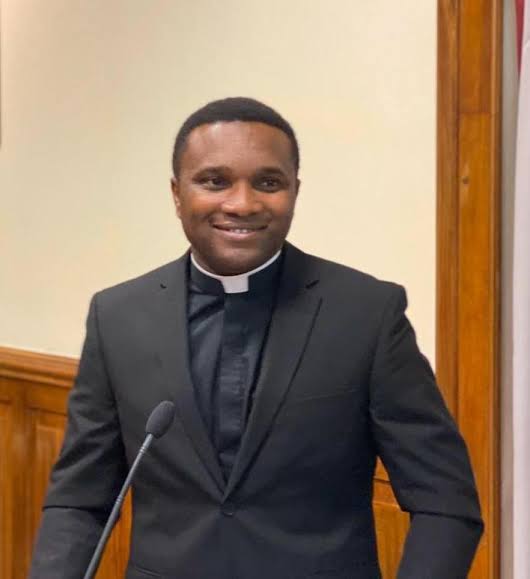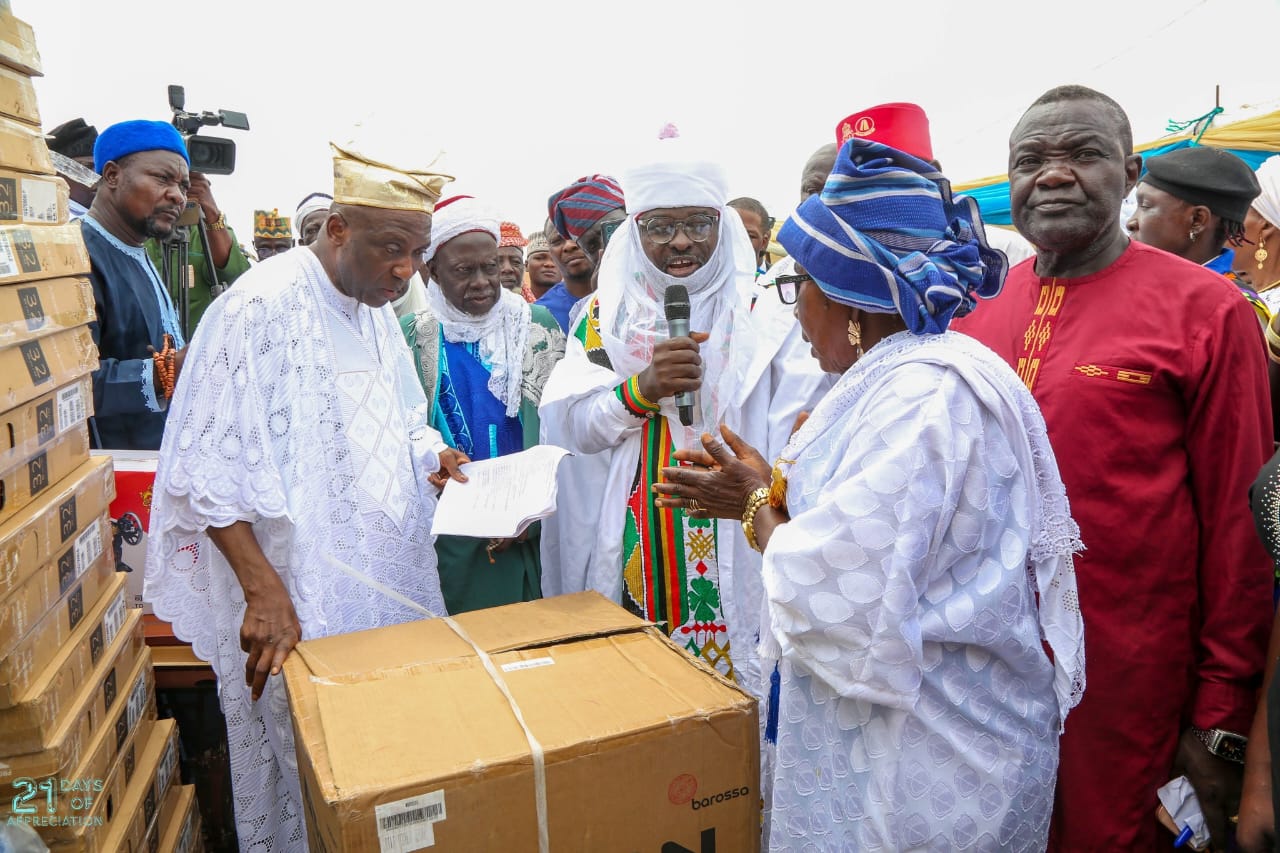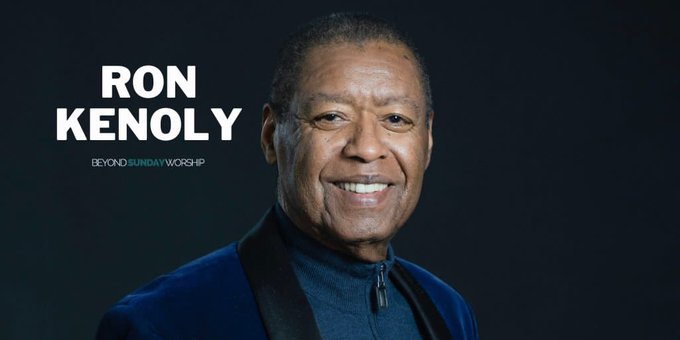Faith In Christ, Advent And Converting Our Idols To Icons
Posted on December 10, 2022
FR GEORGE ADIMIKE

While searching for meaning and happiness, man invariably searches for God―the principle and ultimate of existence―and often without realising it. As is often the case, he gropes in darkness or twilight, embracing shades, shadows and systems, oblivious that the created order possesses vestiges of God and, as such, is supposed to lead to Him. Every created reality points beyond itself to its maker. Hence they represent more than the total of their parts. The world, in its content and context, is sacramental. The iconic quality of material reality makes it reflective of God. In fact, through its existence, the material world reveals God and invites humans to offer worship and glory to Him alone. However, in the expression of his imperfection, man inadvertently or even advertently relates to these material gifts of creation as if they are ends in themselves instead of a means to an end. Unfortunately, they turn icons of creation into idols of their devotion. The Advent season invites us to convert those idols into the icons of God’s glory they are meant to be when used appropriately.
No worship of God excludes the mediation of the created order. The problem arises when the devotion, attention and dedication assigned to the created order are delinked from the true worship of God, so that the cosmos (beauty or order) reveals its value as an instrument. In man’s groping, he encounters the created realities with their grace-born and sacramental qualities and turns them into objects of absolute dedication and surrender. As a result, these icons (things through which one offers devotion or worship) are turned into idols (things to which one offers devotion or worship). In other words, humans offer devotion meant for God to material things; they engage in idolatry instead of iconodulism or iconophilism. In their materialism, they succumb to the alluring charm of the glories of earthly things instead of self-sacrificing surrender to God.
Yet true faith helps one to recognise the sacramental or iconic quality of creation through which honour, worship and glory are offered to God. The entire creation attributes worth (worship) to God by assuming its nature and expressing it according to the divine purpose. So often, humans exaggerate and overrate material goods as gods. They commit many atrocities in pursuit of ephemeral realities, ignoring that their value is contingent on their usefulness as instruments. In each of these, man suffers because he places himself beneath instruments that help him thrive and flourish.
In modern times, this idolatry has taken a new dimension. Nowadays, humans construct altars to self, offering worship to self-actualization, self-fulfilment and human efficiency. In worshipping at the altar of radical autonomy, the contemporary man engages in self-worship. Unfortunately, he often succumbs to the temptation of aligning to the whims of productivity and consumption as the measure of success, which has become another idol of contemporary society. The place of God’s grace is seriously being ridiculed and denigrated in haste to achieve material and technological advancement. Some denounce God and His coterie in preference for material progress. Faith in Christ is mocked, and Christianity is cajoled for its supposed failure to offer earthly redemption and material salvation. Generally, religion is perceived by a section of the public as the enemy of geo-socio-technological progress. This kind of progress that treats religion as an enemy or a suspect often has a disastrous end, leading to rapacious exploitation of the earth, careless disruption of the ecosystem and spiritual bankruptcy.
As an antidote, Christianity as a dialogue, which creates a communion of the believers in Christ, launches one into a ‘we’ of the Church. It is within this ‘we’ of faith or a new ‘I’ of Christ that Christianity forms believers into Christ. Being a Christian entails being Christoformed, laden with the treasures of the Trinitarian family and earthly realities. Yet a Christian both eschews worldliness and avoids escapism. His attachment to Christ and his ‘we-existence’ (the Church) strips him of the inordinate attachment that mistakes the created for the Creator. The proper Creator-creature relationship illumines paths of life, sheds light on shadows, clarifies the sheds and explains systems and ultimately leads to the recovery of the actual value of things. With an inward reservoir of courage, confidence, calmness, and assuring trust that comes from faith in Christ, a Christian experiences easy access to God.
Entering Advent, waiting on the Lord, the Church reminds us of the contingent and temporal nature of our earthly sojourn. Advent offers Christians the opportunity to construct, correct and reconstruct their lives to be fit for God in this mystery of waiting. It is perfect for converting one’s idols to icons, thereby recovering the correct value of created things and finally using them for God’s glory and human flourishing. As a time of waiting on the Saviour, who gave time its finality and history its meaning, Advent provides a heightened moment when Christians penetrate deeper into the ramifications of Christian imperatives, rein in free radicals of vices and channel the instincts to produce fruits of virtues. It is a time to prune the vices that litter the garden of one’s life, cultivate a virtuous life and grow in grace. The ethos of waiting requires that Christians live Advent by actively engaging with the world in such a way as to avoid the dangerous unchristian attitude of total embrace or rejection. Christians should not immerse themselves in or be preoccupied with earthly glory as the object of their happiness and devotion.
Similarly, Christ’s faithful should not reject the world in a schizophrenic mindset that sees it as evil. Christians should be neither neo-Pelagians nor neo-Gnostics. The world and all in it belong to God (cf. Psalm 24:1). The Lord entrusted the world to humans to tend and steward as part of Christian responsibility. Advent helps Christians to appreciate the temporal nature of this world so that in the threefold coming of Christ—in time, in mystery and in glory—the world will experience the true light that illuminates, illustrates, warms, and wards. The coming of Christ brings salvation, and Christians are the agents through whom he makes it present. In short, Advent provides the moment and spiritual milieu for deepening one’s faith in Christ and cultivating the world for the glory of the Father and for the common good. Through the Advent mystery, Christians glimpse a new life that results from
faith in he who helps one strip off and unload excess baggage to worship the Creator with simplicity, dignity, purity and confidence, and never convert icons to idols.
*Fr George Adimike*
Categorised as : Opinion, Religion
No Comments »
Related posts


















